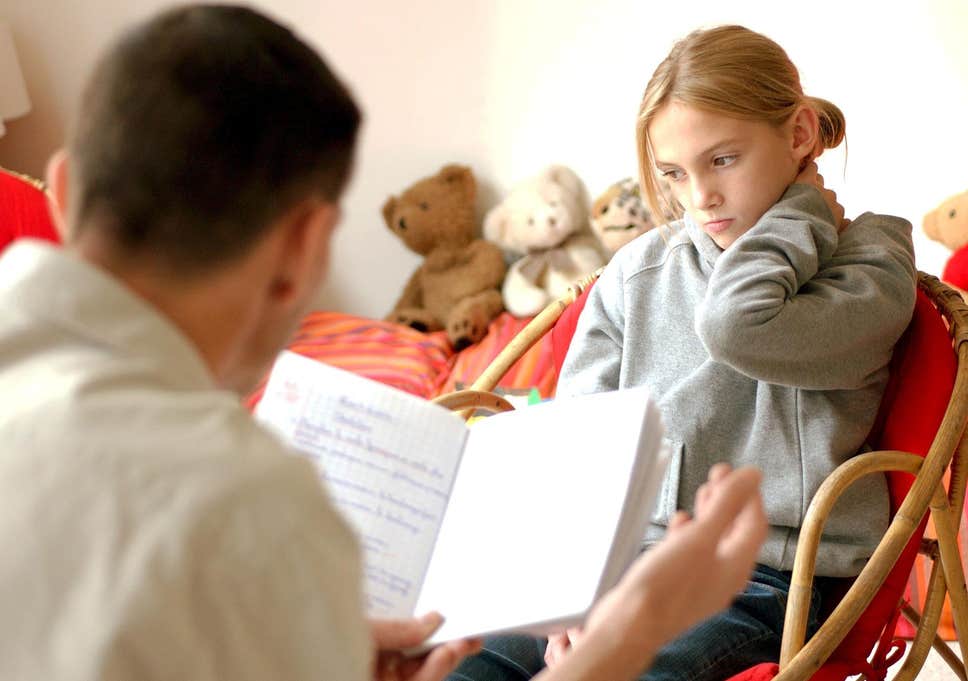Parenting styles can have a profound and lasting effect upon adults, leading many to utilize the same behavioral patterns and coping mechanisms that served them well when dealing with parents during childhood. Adult children of controlling parents may find it especially difficult to break some of these habits. One of the most challenging questions you can ask yourself is this: are my parents still controlling me? If the answer is yes, follow these three steps to regain your independence in adulthood.
1 Examine the Big Decisions
Many controlling parents are able to influence their children, determining everything from their social behavior to where they attend college. Po Bronson’s book “What Should I Do with My Life?” showcases how adults can successfully change career paths later in life. All of the individuals discussed appear extremely content once following the path that always interested them. Is it possible that many of these people had controlling parents?
Controlling parents may have even demanded certain life choices from their children, leaving them to cope with the ramifications of these decisions in adult life. Dr. Susan Forward defines the behavior of a controlling parent in her book “Toxic Parents,” using an example of a parent and child crossing the street: “If a mother restrains her toddler instead of letting him wander into the street, we don’t call her a controller, we call her prudent. […] Appropriate control becomes overcontrol when the mother restrains her child ten years later, long after the child is perfectly able to cross the street alone.”
As adults, individuals have the ability to examine their life choices. Were the choices you made based upon what your parent(s) wanted or what you wanted? Would those success stories in Bronson’s book have changed if, for example, the newly successful pastry chef in Washington D.C. had attended culinary school instead of law school?
2 Discover Who You Really Are
If you feel your life choices have been heavily influenced by controlling parents, take the time to determine what you might have done differently without their input. The results may be surprising.
During this process, try not to let anger or blame get in the way of emotional progress. Featured on CNN and Oprah, author Patricia Evans explains parents may be unaware of their controlling behavior. She claims there is usually a Controller and a Witness within controlling parent conversations. When a child (sometimes even an adult child) makes a clear statement about their preferences, the parent hears something else entirely. Evans states that “Controllers continue to make up something about the Witnesses, whose individuality remains unrecognized, as if their real selves are nonexistent.” Evans offers an illustrative example of a Witness speaking to a Controller, stating that the Witness does not like to cook. The Controller responses with, “Oh, that’s not true. Everybody liked your pilaf at the party.” Instead accepting that the child/adult child does not enjoy cooking, the parent assumes the child does enjoy cooking due to an observed natural talent.
Perhaps these parents make general assumptions about the personalities and interests of their children, leading to the parents having unnecessary control and the child’s identify being denied.
3 Fight the Urge to Regress
One of the greatest challenges most adult children face is regression. Regression can be compared to time travel—even adult children who lack controlling parents typically sink back into their young selves when dealing with their parents (such as during a family dinner).
Many of the forms of interaction between siblings and even parents do not greatly change over time, especially if meetings seldom take place. Regression expert John Lee suggests that you ask yourself one simple question: how old do I feel right now? If you feel that an answer you gave to your parents about your job sounded more like your twenty-year-old self, be kind to yourself. Take the time to let out any pent-up anger, or just take a deep breath. Remember that regression is something that most people face. With practice, the length of the regression period can gradually diminish.
Adult Bully of controlling parents can experience change, separation, and a healthy sense of self-worth—all you have to do is try. As Dr. Susan Forward states, “All parents control their children until those children gain control of their own lives. In normal families, the transition occurs soon after adolescence. In toxic families, this healthy separation is delayed for years—or forever. It can only occur after you have made the changes that will enable you to gain mastery over your own life.”


